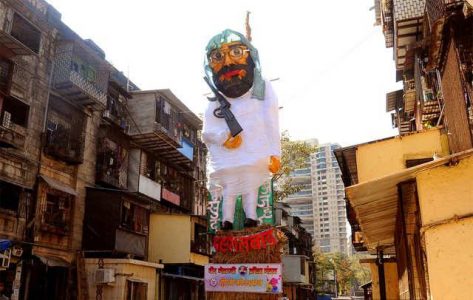
Masood Azhar declared as a global terrorist – what does that mean?
There are no permanent enemies or permanent friends, just permanent interests held true as China lifted the technical hold on declaring Pakistan-based Masood Azhar a global terrorist at the UN Security Council.
Azhar, the leader of Jaish-e-Mohammad (JeM), is considered the mastermind of several terrorist attacks in India, including the 2016 attacks at the IAF base in Pathankot, Punjab, and the Indian Army brigade HQ in Uri in J&K as well as this year’s Pulwama terror attack on a CRPF convoy.
Being listed under the 1267 ISIL & Al Qaeda Sanctions Committee means that Azhar can no longer travel to any UN member country, will have his assets frozen, and will not have access to weapons.
Previously, only the JeM was sanctioned at the UN but not Azhar himself.
The resolution increases the pressure on Pakistan as, till now, Azhar was able to move freely in the country, address his supporters and enjoy the patronage of the Pakistan government and the army, including the country’s spy agency, the ISI — a fact acknowledged by former Pakistan President Pervez Musharraf.
China had blocked the resolution against Azhar for the fourth time this March. But Beijing itself has faced the wrath of terrorism. The Islamic State had in 2017 declared China as its next target, ostensibly for its crackdown on Uighur Muslims.
More recently, 6 Chinese were among the 250-plus killed in the Easter Sunday serial blasts in Sri Lanka, and the Chinese nationals working in Pakistan too have come under threat. This coupled with the sustained diplomatic pressure by India and the US ensured the change of heart.
Labelling Azhar a global terrorist could only be a symbolic victory, and may not lead to a halt on terror attacks emanating from Pakistan. For one, JeM continues to operate and raise money through proxy groups. Then, Hafiz Saeed, the chief of the Jamaat-ud-Dawa (JuD) and the Lashkar-e-Taiba (LeT) and the mastermind behind the 2008 Mumbai terror attacks, was declared a global terrorist in 2008, yet continues to operate freely in Pakistan.
Source: India Times





